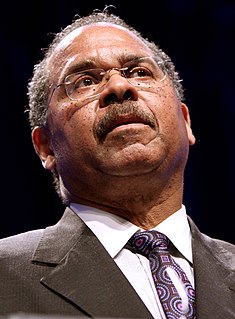A Quote by Jacob Rees-Mogg
It's widely accepted that it is reasonable for a government to use tax policy to change behaviour.
Quote Topics
Related Quotes
That 'change makes us uncomfortable' is now one of the most widely promoted, widely accepted, and under-considered half-truths around. [I]t is not change by itself that makes us uncomfortable; it is not even change that involves taking on something very difficult. Rather, it is change that leaves us feeling defenseless before the dangers we 'know' to be present that causes us anxiety.
I think the ethos for Gov. Romney is to use a whole variety of policies, of which tax policy is one, to try to raise the rate of growth. We've had a recovery from the financial crisis that would be well below what one might normally expect for a recovery from such a deep recession. And to counteract that we need better tax policy.
When I left law school, I wanted to go into the government, into the tax policy area. I got the job that I wanted in the International Tax Council's office in Treasury. I arrived determined to change the world. But I discovered very quickly that the world couldn't care less. And I couldn't stomach the lying and stealing that I witnessed. I realized that the only difference between my mother's family and the senators and administrators that I was working with was that the latter wore suits and ties.
[The taxing power of the state] divides the community into two great classes: one consisting of those who, in reality, pay the taxes and, of course, bear exclusively the burden of supporting the government; and the other, of those who are the recipients of their proceeds through disbursements,and who are, in fact, supported by the government; or, in fewer words, to divide it into tax-payers and tax-consumers. But the effect of this is to place them in antagonistic relations in reference to the fiscal action of the government and the entire course of policy therewith connected.
The tax that was supposed to soak the rich has instead soaked America. The beneficiary of the income tax has not been the poor, but big government. The income tax has given us a government bureaucracy that outnumbers the manufacturing work force. It has created welfare dependencies that have entrapped millions of Americans in an underclass that is forced to live a sordid existence of trading votes for government handouts.


































